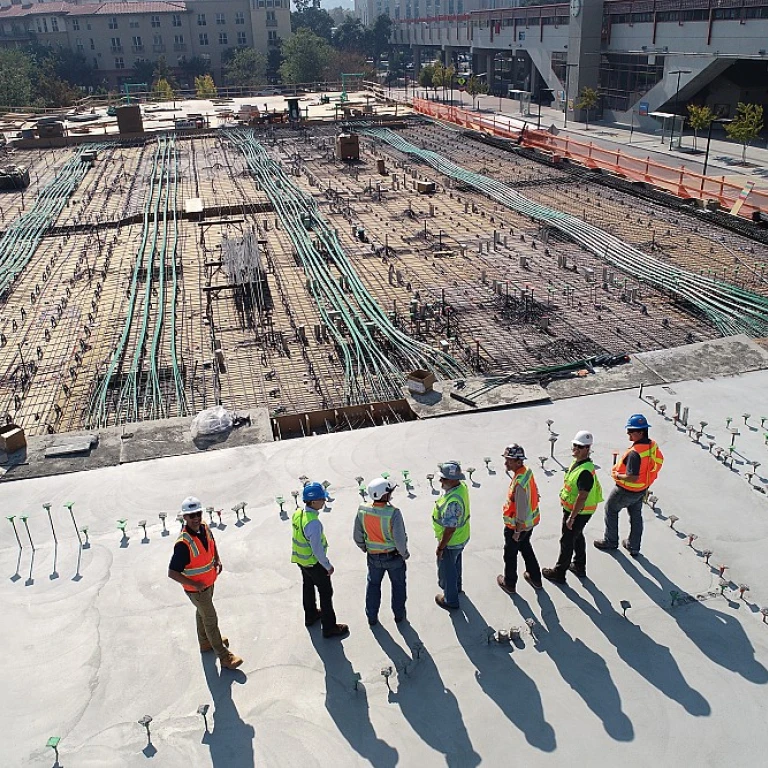Data: The Heartbeat of Modern HR
The Growing Importance of Data in Human Resources
In today's rapidly evolving business landscape, the significance of data in human resources cannot be overstated. As competition intensifies and workforce dynamics become more complex, HR professionals are increasingly relying on data-driven insights to streamline processes and enhance decision-making. This shift towards a data-centric approach isn't just a trend; it's a necessity for HR teams striving to maintain a competitive edge.
The massive influx of data from various sources – such as employee performance metrics, engagement surveys, and recruitment systems – provides a wealth of information that, when harnessed effectively, can significantly improve an organization's HR practices. By analyzing this data, companies can make informed decisions, tailor strategies to meet specific needs, and proactively address potential challenges.
From Compliance to Strategic Partner
Traditionally, HR has been viewed as a primarily administrative function, focused on tasks like payroll, compliance, and employee relations. However, with the rise of data-driven approaches, HR is transforming into a strategic partner that plays a pivotal role in achieving organizational goals. By leveraging comprehensive data insights, HR teams are better equipped to align their strategies with broader business objectives, drive innovation, and enhance employee experience.
These strategic capabilities are further bolstered by advanced technologies, which we'll explore in another section. By implementing robust data analytics solutions, HR departments can predict trends, optimize workforce planning, and streamline recruitment efforts more effectively than ever before.
Unleashing the Potential of Data
As we continue to embrace a data-driven future, the challenge lies in effectively managing and interpreting the vast amounts of information available. HR teams must develop the right skill sets and cultivate a data-savvy culture within their organizations to fully capitalize on this potential.
To delve deeper into the transformative role of data in HR, you can explore
the future of HR analytics, which provides comprehensive insights into how this trend is shaping the industry.
People Analytics: The Key to Unlocking Talent
Unraveling Talent Through People Analytics
In the evolving landscape of human resources, people analytics has emerged as a pivotal tool in discerning and harnessing talent. By digging into data, HR leaders can identify key performance indicators, develop effective talent acquisition strategies, and enhance employee engagement and retention efforts. This data-centric approach not only optimizes workforce management but also ensures that organizations can tailor their strategies to meet the evolving needs of their employees.
The advantages of people analytics are multifaceted. It provides HR professionals with actionable insights to forecast talent requirements, maintain diversity and inclusion, and manage workforce dynamics more effectively. These insights empower HR teams to make informed decisions, focusing on employee attributes that align with the organization's values and strategic goals.
Moreover, by using people analytics to monitor employee performance, HR departments can identify high-potential individuals and offer timely development opportunities. This proactive talent management approach facilitates a nurturing environment where employees can thrive and contribute to the company's success.
Real-life HR success stories give us a glimpse into the potential of people analytics. From tech giants to venerable institutions, companies are leveraging data to transform their HR practices. For example, innovative metrics tracking and data interpretation are increasingly becoming integral in shaping HR policies across various industries.
Discover more about groundbreaking HR strategies and initiatives in the
HR Derby Date guide, which sheds light on how intricate data analysis is revolutionizing talent acquisition and retention in today's competitive market.
Building a Data-Driven Culture
Cultivating a Data-Driven Organizational Culture
In an ever-evolving world of work, HR departments are increasingly turning to technology and analytics to enhance their strategic impact. Core to this transformation is the establishment of a data-driven culture within organizations. But what does it take to foster such an environment where data is not just an afterthought, but a central pillar of decision-making?
Implementing data-driven strategies in HR requires a shift in mindset, advocating trust in data insights and analytics as central to every HR process. This necessitates leadership buy-in and widespread acceptance across all management levels. Organizations should focus on training and development to enhance data literacy among HR professionals, empowering them to interpret and utilize data effectively in their day-to-day roles.
Creating a culture where data thrives also means breaking down silos within the organization. By encouraging open communication and knowledge sharing, companies can ensure that data insights are accessible and actionable across departments. This aligns with the strategic implementation of people analytics as a way to truly unlock talent potential.
Moreover, integrating new technologies plays a crucial role in this cultural transformation. As we discussed in the section on "Technology in HR Transformation," advanced software and tools are available to streamline and enhance data collection and analysis processes. By leveraging these technologies, HR teams can strive towards more accurate, comprehensive insights.
As a driving force behind organizational success, building a data-driven culture also involves consistently evaluating and refining HR practices through feedback loops. Ongoing assessments help organizations adapt and respond proactively to challenges, ensuring that the contribution of HR analytics remains at the forefront of shaping the future workforce landscape.
For more strategies on embedding data analytics into your HR framework, explore further insights on
unlocking the future of talent analytics.
The Impact of AI and Machine Learning on HR Practices
As we delve deeper into the age of digital transformation for human resources, technology is emerging as a crucial ally in revolutionizing HR practices. Artificial intelligence (AI) and machine learning (ML) are taking center stage, providing tools to automate complex tasks, elevate employee experiences, and streamline operations. These advancements in technology are not just enhancing efficiency, but also significantly redefining the way HR professionals operate and strategize.
AI and ML in HR are ushering in an era where predictive analytics can provide valuable insights into employee performance, potential attrition, and even the cultural fit of potential hires. With these powerful technologies, HR can transition from merely administrative roles to strategic partners. Implementing AI-driven recruitment tools, for example, allows HR departments to analyze vast volumes of candidate data swiftly, reducing time to hire and improving the quality of applicants.
Similarly, employee engagement platforms powered by machine learning are providing personalized experiences, predicting disengagement, and proposing timely interventions. This means organizations can proactively address employee concerns, thereby boosting retention and morale. The seamless integration of these technologies into HR processes ensures that companies remain adaptive and competitive in the evolving landscape.
Integrating such technology into HR practices builds on the foundational aspects of data utilization and people analytics, as previously discussed. As organizations aim to create a data-driven culture, the strategic use of AI and ML becomes pivotal in achieving this objective. HR departments that embrace these tools will not only streamline operations but also enrich their strategic forecasting and decision-making abilities.
Ultimately, the role of technology in HR goes beyond efficiency. It is about leveraging innovations to foster a more engaged, integrated, and satisfied workforce, positioning HR as a catalyst for growth and transformation within the organization. As we continue on this journey, keeping pace with technological advancements will be essential for HR leaders aspiring to spearhead organizational change.
Real-Life Success Stories
Triumphs in the World of Data-Enhanced HR
Real-life success stories serve as a beacon of inspiration for organizations looking to harness the power of data-driven strategies in human resources. These stories highlight the effectiveness of data-centric HR practices and provide tangible examples of overcoming challenges while achieving remarkable results.
One of the most impressive examples comes from a multinational company that transformed its talent acquisition process by investing in people analytics. By leveraging data on candidate experiences and using sophisticated algorithms, the organization was able to pinpoint the exact skills and qualities needed for each role. This approach not only streamlined recruitment but also significantly enhanced the quality of hires, resulting in improved team performance and reduced turnover rates. This success exemplifies how people analytics can be the key to unlocking a talent pool, reflecting on the insights shared earlier in the series about talent optimization.
In another noteworthy instance, a leading tech firm embraced a complete shift towards a data-driven culture. Initially, there was apprehension towards integrating data into everyday HR functions. However, through consistent efforts to educate and align the entire workforce with data-driven goals, the organization witnessed a profound change in workplace dynamics. Employee feedback became more structured, leading to targeted development programs and tailored wellness initiatives. This cultural shift illustrates the transformative potential of embedding data-driven practices as discussed in the previous sections.
Additionally, companies are continually recognizing the role of technology in reshaping their HR approaches. A global retail giant made headlines when it integrated an AI-powered system to handle thousands of employee queries and support HR decision-making processes. This technological integration not only saved time but also enabled HR teams to focus on more strategic initiatives, echoing the earlier discussion on the critical role of technology in HR transformation.
These success stories underline a clear message: organizations that are willing to embrace data-driven HR strategies are not just surviving but thriving in today's competitive landscape. The remarkable advancements they achieve serve as a roadmap for others eager to embark on their journey towards becoming data-enhanced HR powerhouses.
The Future of HR: Skills and Challenges
Navigating the Skillset of Tomorrow’s HR Professionals
As we look towards the evolution of human resources empowered by data, it's clear that mastering certain skills will become crucial for HR professionals aiming to thrive in this landscape. The foundation established by data as the heart of HR sets the stage for the transformation of roles within HR departments.
HR practitioners are increasingly expected to possess analytical skills that were previously reserved for more traditional data-driven roles. Understanding data and the ability to interpret complex data sets will be paramount. These skills are no longer a nice-to-have but a necessity for those hoping to drive impactful decision-making and optimize talent strategies.
Moreover, as we emphasized in earlier sections, building a culture centered on data requires HR to assume leadership roles in technological adoption. This shift demands proficiency not only with data analytics tools but also with technologies that enable automation and enhance employee engagement and experience. Keeping abreast of emerging tools and technologies becomes an invaluable asset in crafting a data-driven culture.
Challenges on the Horizon: Balancing Data with a Human Touch
While the insights gleaned from robust data analytics can substantially elevate HR practices, they can also pose several challenges. One of the foremost challenges will be maintaining the delicate balance between data-driven decisions and preserving the human element that is inherent to HR. The risk is that over-reliance on data might lead to decisions that overlook individual circumstances or the softer skills inherent in people management.
Data privacy is another crucial consideration that HR departments must remain vigilant about. As more personal data is collected, safeguarding this data against breaches becomes ever more important. Ensuring transparency about data usage and implementing secure practices will help earn employee trust and support.
Lastly, there remains a continuous need for upskilling and reskilling initiatives within the HR workforce. The rapid pace of technological change mandates ongoing education to keep up with new tools, methodologies, and data-compliance regulations, securing a well-rounded and agile HR team.
In summary, while data-driven HR offers vast potential, the future will demand professionals who can navigate both data-centric skills and human insight. Embracing these changes with a proactive approach sets the groundwork for sustainable success in the HR field.












